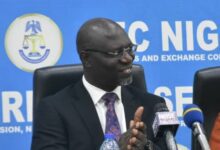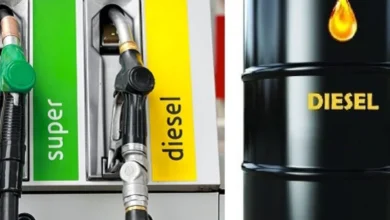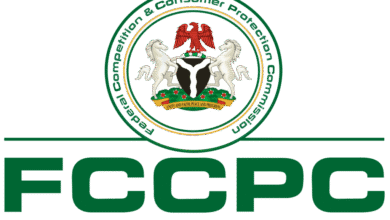CBN Advised To Set Up Whistle-Blower System

The President of the Association of Capital Market Academics of Nigeria (ACMAN) and renowned Professor of Capital Market, Uche Uwaleke, has advised the Central Bank of Nigeria to set up a Whistle-Blower System to assist in its implementation of recent guidelines and policies.
He stated this on Thursday when he addressed members of the press on recent financial stability measures taken by the CBN and their likely impact on the nation’s capital market.
According to Professor Uwaleke, ‘Aside the raft of COVID-19 interventions through the Banking system which require close monitoring, the financial sector has recently witnessed a number of measures by the CBN designed to stabilize it and possibly insulate it from the negative impact of the pandemic. These include the Global Standing Instruction designed in part to reduce the Non-Performing Loans in the banking industry as well as measures that directly impact the liquidity in the forex market’.
‘In order to contextualize the CBN’s recent measures regarding forex, it is pertinent to realize that the Q2 2020 negative growth in real GDP, high inflation rate, increase in inflation and downturn in virtually all macro indicators are all partly attributed to scarcity of forex following collapse in oil price since oil revenue accounts for over 90% of our forex receipts. This precarious supply situation is excercebated by spurious demand for forex, activities of speculators and sharp practices. So, the CBN is faced with a double Whammy sort of situation’.
He listed part of the sharp practices which exert pressure in the forex market as the over-invoicing of products imported into the country due to the activities of middle men arguing that, requiring banks to raise Form-M only in favour of a supplier as opposed to routing payments for imports through agents will go a long way in reducing the pressure in the forex market especially if the product price verification mechanism the CBN is putting in place is effectively implemented.
He equally commended the directive by the CBN to Exporters to ensure that all export proceeds are repatriated as a measure capable of boosting forex supply if complied with.
He urged the CBN not to hesitate to apply sanctions on violators to serve as deterrent. According to him, ‘this is the time for the apex bank to wield the big stick, not mere slap on the wrist, on any Deposit Money Bank that flouts the Form-M order regarding third parties’.
‘I have not stopped wondering where people who hawk forex in the black market get their hard currencies. The CBN should device means of checking round tripping to ensure that the banks are not diverting forex to the parallel market. Ditto for BDCs especially now that the Bank has announced plans to resume sale of forex to the BDCs’
Professor Uwaleke believes that improved liquidity in the forex market will rub-off positively on the capital market but thinks that the real challenge now is how to ensure that these laudable measures are not circumvented thereby defeating the purpose for which they were put in place. He therefore urged the CBN to put in place a comprehensive Whistle-Blower System to support the effective execution of these measures.
On the proposed WBS, he goes on to explain: ‘’I am not referring to the one set up by the Federal Ministry of Finance some time ago. I am also aware of the Whistle-Blower policy statement contained in Section 5 of the CBN Revised Code of Corporate Governance for Banks and Discount Houses which requires banks to have a whistle-blowing policy that contain mechanisms, including assurance of confidentiality, that encourage employees and stakeholders to report any unethical activity to the bank or the CBN. Again, the comprehensive WBS is different from the Customer complaints mechanism handled by the Consumer Protection department of the apex Bank.
‘I am talking about a facility that allows customers, shareholders, NGOs and other members of the public, who may not be stakeholders of a bank, to report to the CBN any observed wrongdoing by a bank or non-bank financial Institution akin to the whistle-blower policy of the South African Reserve Bank. Through this system, the public can report any alleged violation of the guidelines or directives of the CBN especially in relation to forex. It goes without saying that whistle-blowers who inform regulators of suspected instances of infractions, especially at this time, can be a vital source of information to support regulation against sharp practices’.
Professor Uwaleke is convinced that following the example of South Africa, the WBS will help rein-in misconduct in Nigeria’s financial markets. ‘Whether this should involve monetary incentives to individuals who come forward to report possible violations is left for the CBN to figure out’ he concludes.






